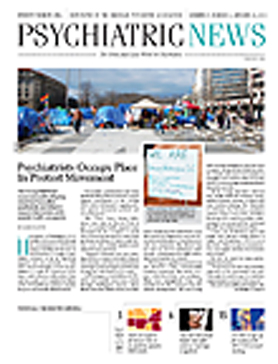Expenditures on psychiatric drugs by insurance beneficiaries have dropped dramatically in the last decade.
The average annual rate of growth in expenditures on psychiatric medications per commercially insured enrollee declined from 18.5 percent in the period 1997-2001 to 6.3 in 2001-2008, according to an analysis in the January Psychiatric Services.
Lead author Tami Mark, Ph.D., and colleagues at Thompson Reuters, which conducted the analysis, said the decline in spending is largely the result of the wide availability of generic medications, a phenomenon that may have both positive and negative implications: generics make lower-cost medications accessible to patients, but the return on investment for pharmaceutical companies is lower, creating a disincentive to develop new drugs.
“[M]any psychotropic medications have much room for improvement in efficacy, rate of onset of action, and tolerability,” the authors stated. “Whether new products that address the limitations are brought to market remains to be seen.”
Trends in spending for psychotropic medications were analyzed using data from the MarketScan Commercial Claims and Encounters Database for the period 1997-2008 and the Medical Expenditure Panel Survey (MEPS) for the period 1997-2007. The Market Scan database contains information on insurance claims for about 30 million employees and dependents receiving coverage through approximately 150 employer and regional health plans. The MEPS is an ongoing national household survey of the civilian noninstitutionalized U.S. population.
The researchers found that declines in both cost-per-day supplied (the cost of a drug per day for which it was prescribed) and in the percentage of enrollees who used a medication accounted for an overall decline of more than 12 percent in expenditures on psychiatric medications from 1997 to 2008. A drop in the number of days supplied per user accounted for a smaller percentage of the overall drop in expenditures.
The increased introduction of generic medications was a key contributor to the slower growth in costs; generics accounted for 70 percent of psychiatric medications purchased by 2008.
The researchers said that in the 12 years preceding 2005, growth in spending on psychiatric drugs exceeded that of all other prescription drugs, but by 2004-2005, growth in spending on psychiatric drugs and other prescription drugs was about the same. Growth in spending on psychiatric drugs peaked at a higher level for Medicaid patients than for privately insured individuals; but after 2001 both began to decline.
The drop in growth of spending was greatest for antidepressant medications, which declined from an annual rate of 18.2 percent from 1997 to 2001 to just 2 percent from 2001 to 2008.
Mark and colleagues said that the MarketScan data indicated that in 1997, 64 percent of psychiatric prescriptions filled were for branded products and 36 percent for generic products. By 2008, only 30 percent of psychiatric prescriptions filled were for branded products and 70 percent for generics. On average, the cost of a generic medication is 80 percent to 85 percent lower than for the branded equivalent.
The increased accessibility afforded by generic drugs may be offset by diminished incentives on the part of drug companies to invest in new compounds. “The availability of a broad range of psycho-tropic medications within each major class, coupled with significant generic penetration, may serve to diminish the financial return to the pharmaceutical industry from drug development and create a disincentive to bring new medications to market,” Mark and colleagues suggested.
